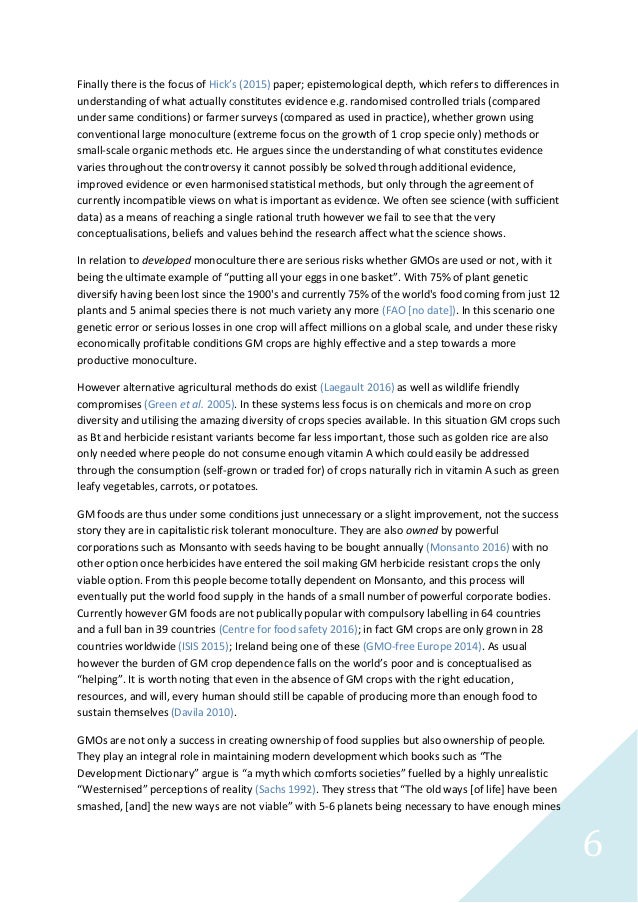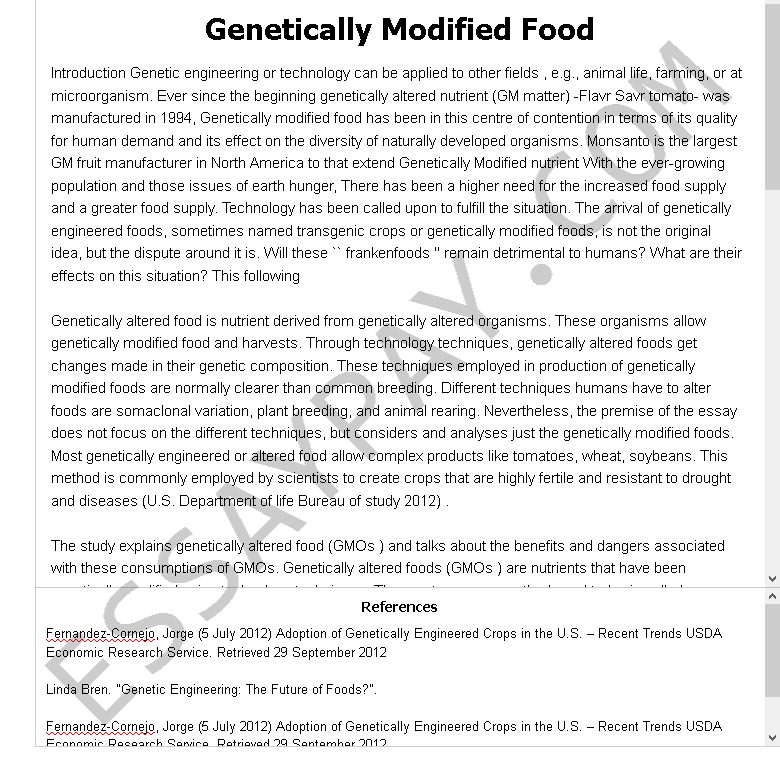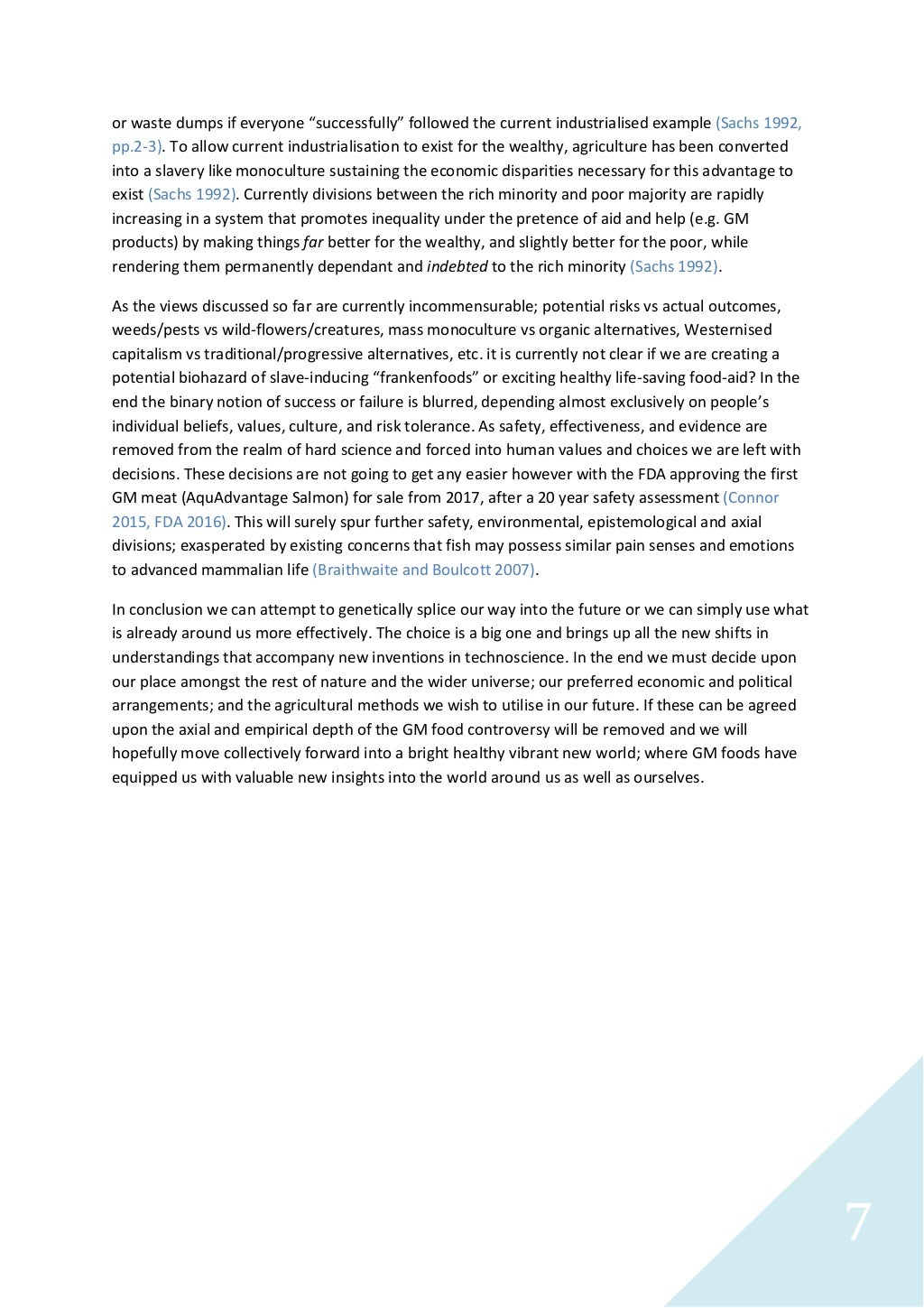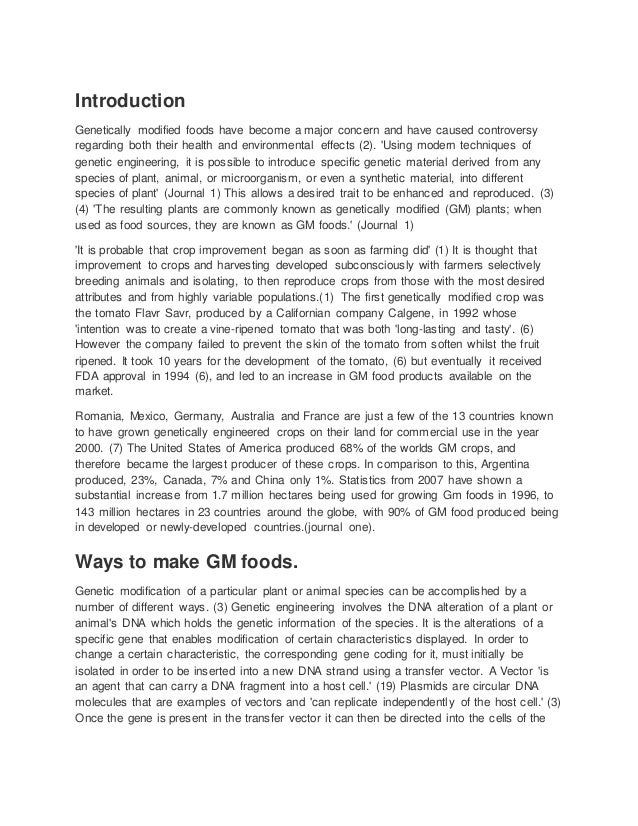
{dialog-heading}
Introduction Genetically modified (GM) plants, also called transgenic plants, are designed to acquire useful quality attributes such as insect resistance, herbicide tolerance, abiotic stress tolerance, disease resistance, high nutritional quality, high yield potential, delayed ripening, enhanced ornamental value, male sterility, and production of edible vaccines · Genetically modified food (GM Food) is made from modification of the DNA of the genomes of natural organisms. The benefits that accrue to farmers and consumers of agricultural commodities by far outweigh the risks involved. First, GM technology enables farmers to harvest more food as the concerns about pesticides are often eliminated Genetically modified (GM) foods are defined as "foods derived from organisms whose genetic material (DNA) has been modified in a way that does not occur naturally, e.g. through the introduction of a gene from a different organism" (WHO, ). Genetic engineering (also called modern biotechnology or gene technology) performs this modification

Top 10 Similar Topics
· Genetically modified food (GM Food) is made from modification of the DNA of the genomes of natural organisms. The benefits that accrue to farmers and consumers of agricultural commodities by far outweigh the risks involved. First, GM technology enables farmers to harvest more food as the concerns about pesticides are often eliminated · GM foods have been around for over 20 years. Contrary to popular belief these foods have not been linked to cancer or another disease. There have been several studies, but none managed to prove that GM crops cause cancer. Organic foods are certainly healthier than GM foods, but their affordability is an issue Genetically modified (GM) foods are defined as "foods derived from organisms whose genetic material (DNA) has been modified in a way that does not occur naturally, e.g. through the introduction of a gene from a different organism" (WHO, ). Genetic engineering (also called modern biotechnology or gene technology) performs this modification

· Genetically modified food (GM Food) is made from modification of the DNA of the genomes of natural organisms. The benefits that accrue to farmers and consumers of agricultural commodities by far outweigh the risks involved. First, GM technology enables farmers to harvest more food as the concerns about pesticides are often eliminated · GM foods have been around for over 20 years. Contrary to popular belief these foods have not been linked to cancer or another disease. There have been several studies, but none managed to prove that GM crops cause cancer. Organic foods are certainly healthier than GM foods, but their affordability is an issue Genetically modified (GM) foods are defined as "foods derived from organisms whose genetic material (DNA) has been modified in a way that does not occur naturally, e.g. through the introduction of a gene from a different organism" (WHO, ). Genetic engineering (also called modern biotechnology or gene technology) performs this modification

Introduction Genetically modified (GM) plants, also called transgenic plants, are designed to acquire useful quality attributes such as insect resistance, herbicide tolerance, abiotic stress tolerance, disease resistance, high nutritional quality, high yield potential, delayed ripening, enhanced ornamental value, male sterility, and production of edible vaccines Genetically modified (GM) foods are defined as "foods derived from organisms whose genetic material (DNA) has been modified in a way that does not occur naturally, e.g. through the introduction of a gene from a different organism" (WHO, ). Genetic engineering (also called modern biotechnology or gene technology) performs this modification · GM foods have been around for over 20 years. Contrary to popular belief these foods have not been linked to cancer or another disease. There have been several studies, but none managed to prove that GM crops cause cancer. Organic foods are certainly healthier than GM foods, but their affordability is an issue

Introduction Genetically modified (GM) plants, also called transgenic plants, are designed to acquire useful quality attributes such as insect resistance, herbicide tolerance, abiotic stress tolerance, disease resistance, high nutritional quality, high yield potential, delayed ripening, enhanced ornamental value, male sterility, and production of edible vaccines Genetically modified (GM) foods are defined as "foods derived from organisms whose genetic material (DNA) has been modified in a way that does not occur naturally, e.g. through the introduction of a gene from a different organism" (WHO, ). Genetic engineering (also called modern biotechnology or gene technology) performs this modification · GM foods have been around for over 20 years. Contrary to popular belief these foods have not been linked to cancer or another disease. There have been several studies, but none managed to prove that GM crops cause cancer. Organic foods are certainly healthier than GM foods, but their affordability is an issue
No comments:
Post a Comment